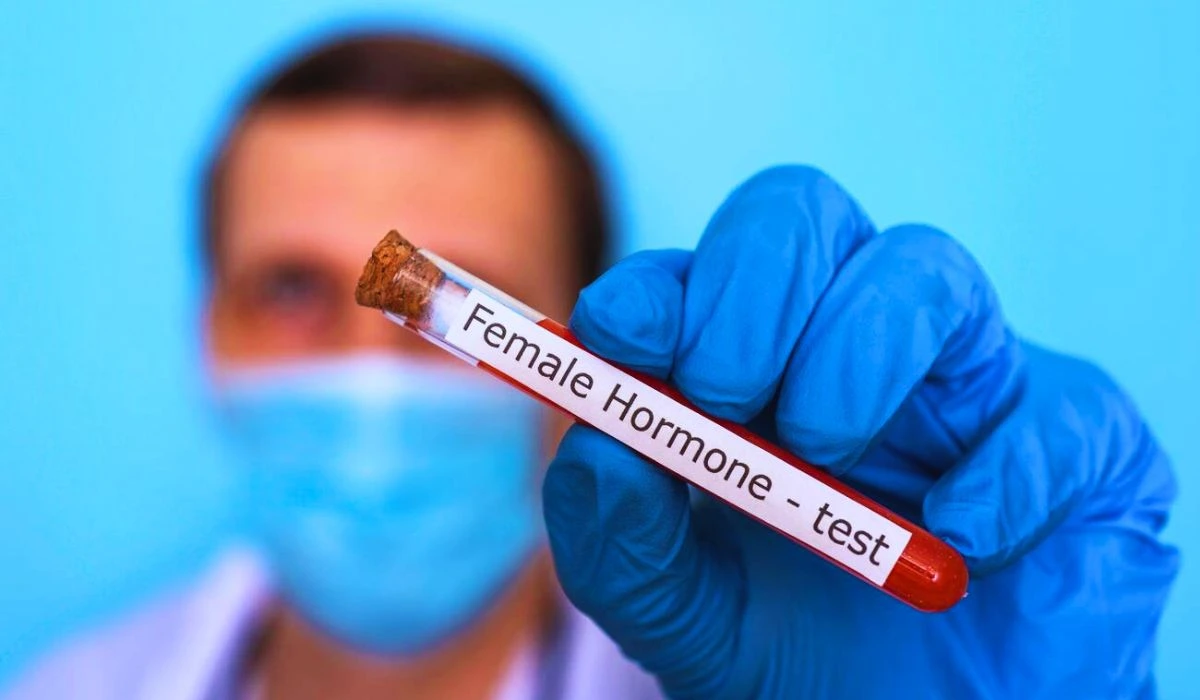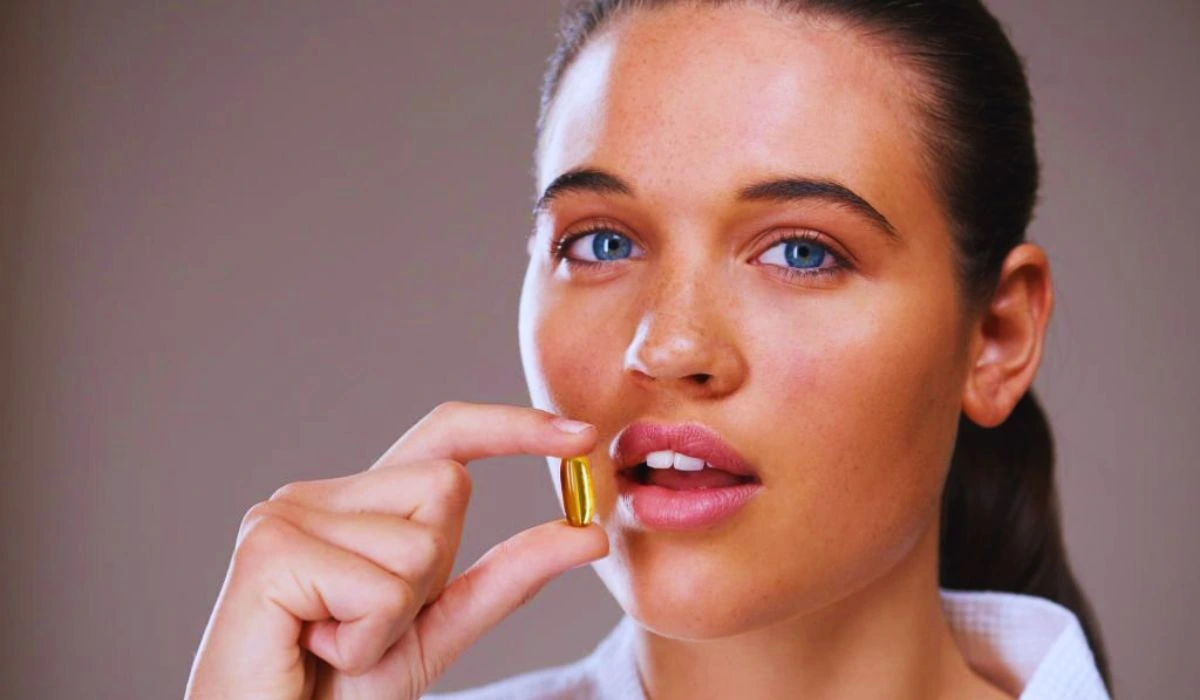Testosterone is commonly thought of as a male hormone, but females also produce small amounts of testosterone in their ovaries and adrenal glands. While testosterone is crucial for health and well-being in both sexes, too much testosterone in women can cause symptoms like facial hair growth, acne, irregular periods, and infertility.
Luckily, there are natural ways for women to reduce excess testosterone levels without the use of synthetic hormones or medications. Certain vitamins and supplements have been shown to help lower testosterone in females by supporting the body’s hormone balance.
In this article, we’ll look at the symptoms of high testosterone in women and explore science-backed vitamins that may help restore normal testosterone levels.
Symptoms Of High Testosterone In Females

The symptoms of elevated testosterone in women can vary, but may include:
- Excess facial and body hair growth (hirsutism) – Coarsening voice
- Acne outbreaks
- Thinning hair or bald patches on the scalp
- Irregular menstrual cycles or absence of periods
- Increased muscle mass and reduced body fat
- Mood changes like irritation or aggression
- Sleep disturbances
If you are experiencing any of these symptoms, it’s a good idea to see your doctor to test your testosterone levels. A blood test can confirm if testosterone is elevated and help identify any underlying causes.
Vitamins To Lower Testosterone In Females
🔹 Vitamin D
Getting adequate vitamin D from sunlight, food, or supplements may help lower testosterone in women. Vitamin D helps regulate over 200 genes, including those involved in hormone activity.
Studies show vitamin D deficiency is linked to higher testosterone levels in women with polycystic ovary syndrome (PCOS). Supplementing with vitamin D may lower testosterone by improving insulin sensitivity and reducing inflammation.
The recommended daily intake of vitamin D is 600 IU (15 mcg) for adults. Oily fish, egg yolks, and fortified foods are good dietary sources. Vitamin D3 supplements may help those with a deficiency.
🔹 Vitamin B6
Vitamin B6 plays an important role in regulating hormones, including testosterone. It’s involved in creating neurotransmitters that influence testosterone secretion.
Research suggests taking 50-100 mg of vitamin B6 per day may help normalize testosterone in women with PCOS and other conditions. Good food sources include poultry, fish, starchy vegetables, soymilk, and fortified cereals.
🔹 Magnesium
Magnesium is essential for over 300 enzyme reactions in the body, including those that influence hormones. Studies show magnesium intake is often lower in women with high testosterone levels.
Supplementing with 200-400 mg of magnesium per day may help reduce excess testosterone. Spinach, almonds, cashews, black beans, and edamame are excellent dietary sources of magnesium.
🔹 Zinc
Zinc is key for hormone balance, fertility, and reproductive health in both men and women. This mineral is needed for proper testosterone synthesis and metabolism.
Some research indicates zinc deficiency may contribute to high testosterone in women with PCOS. Eating zinc-rich foods like oysters, meat, nuts, and legumes or taking a zinc supplement may help restore optimal zinc status.
🔹 Spearmint Tea
Spearmint tea contains anti-androgenic compounds that may decrease testosterone levels in females when consumed regularly.
One study found drinking spearmint tea twice daily for one month reduced testosterone levels in women with hirsutism and androgenic alopecia. The flavonoids in spearmint tea may inhibit testosterone conversion and activity.
🔹 Chasteberry
Chasteberry (Vitex agnus-castus) is an herb used traditionally to balance female reproductive hormones. It contains compounds called flavonoids that influence hormone secretion, including testosterone.
Some research shows that chasteberry extracts may mitigate high testosterone levels in women with PCOS. The usual dosage is 200-400 mg per day of a standardized extract.
🔹 Saw Palmetto
Saw palmetto is an herbal supplement often used to treat benign prostatic hyperplasia (BPH) in men. However, it may also inhibit testosterone production and activity in women.
One 12-week study gave saw palmetto extract or a placebo to women with high testosterone levels. The saw palmetto group experienced a reduction in levels of both free and total testosterone. The recommended dosage is 320 mg per day.
How To Treat High Testosterone In Females Naturally?

In addition to vitamins and supplements, making certain lifestyle changes may help lower excess testosterone:
- Follow a low glycemic diet – Limit sugar, refined grains, alcohol, and caffeine, which can worsen hormone imbalance. Eat more vegetables, high-fiber fruits, lean proteins, nuts and seeds.
- Exercise regularly – Get at least 30 minutes of moderate activity per day to help regulate testosterone and increase insulin sensitivity.
- Manage stress – High, chronic stress raises testosterone and disrupts endocrine function. Try yoga, meditation, journaling, or other relaxation techniques.
- Get enough sleep – Not getting 7-9 hours per night can negatively impact hormones. Go to bed and wake up at consistent times to support the circadian rhythm.
- Achieve or maintain healthy body weight – Excess body fat is linked to higher testosterone in women. Losing weight if overweight/obese can help restore hormone balance.
- Avoid endocrine disruptors – Limit exposure to chemicals like BPA and phthalates that interfere with natural hormone levels. Use glass food containers, natural cosmetics, and organic household products when possible.
Conclusion
Maintaining normal testosterone levels is important for women’s health. While testosterone is essential, too much can lead to unpleasant symptoms and fertility issues. Vitamin D, vitamin B6, magnesium, zinc, spearmint tea, chasteberry, and saw palmetto may help lower excess testosterone in females by supporting hormone regulation.
Combining these natural remedies with a healthy lifestyle can get testosterone back in balance and provide relief from associated symptoms. Work with your healthcare provider to determine the best approach for your individual hormonal health needs.
FAQs
A: Normal total testosterone levels for healthy women are generally 15-70 ng/dL. Levels above the normal range may indicate excess testosterone production.
A: Common causes include polycystic ovary syndrome (PCOS), adrenal tumors, hormone imbalance, endocrine disruptors, menopause, obesity, stress, and certain medications.
A: Symptoms like facial hair growth, thinning hair, acne, deepening voice, muscle growth, mood changes, and menstrual irregularities may signal high testosterone. A blood test can confirm elevated levels.
A: See your doctor if you have symptoms of excess testosterone. A medical evaluation can check hormone levels and help identify any underlying condition causing abnormalities.
A: Yes, following a low glycemic diet with healthy fats, lean proteins, high-fiber carbs, and micronutrient-rich foods may help lower testosterone by balancing hormones and lowering inflammation.

